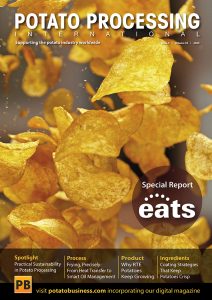US Study Links High French Fry Intake to Increased Type 2 Diabetes Risk

A major US study published in The BMJ has found that high French fry consumption is linked to a significantly increased risk of type 2 diabetes, while baked, boiled, or mashed potatoes show no such association.
Researchers analysed nearly 40 years of dietary and health data from 205,107 adults enrolled in the Nurses’ Health Study, Nurses’ Health Study II, and the Health Professionals Follow-up Study. Over 5.17 million person-years of follow-up, 22,299 cases of type 2 diabetes were recorded.
After adjusting for body mass index (BMI), lifestyle, and other dietary factors, the team found that each additional three servings of French fries per week was associated with a 20% higher risk of developing type 2 diabetes (hazard ratio 1.20; 95% CI 1.12–1.28). By comparison, the same increase in baked, boiled, or mashed potato intake was not statistically linked to diabetes risk (HR 1.01; 95% CI 0.98–1.05).
Total potato consumption showed a modest positive association with diabetes risk, but this was largely driven by fried potatoes. The researchers also examined potential dietary substitutions, estimating that replacing three weekly servings of French fries with whole grains could lower diabetes risk by 19%. Replacing total potatoes with whole grains reduced risk by 8%. In contrast, swapping potatoes for white rice increased diabetes risk.
“Our findings underscore that the health effects of potato intake depend heavily on the form in which they are consumed and the foods they replace,” the authors wrote. “Replacing fried potatoes with whole grains, legumes, or vegetables may help reduce the risk of type 2 diabetes.”
An updated meta-analysis of 13 prospective cohort studies, involving 587,081 participants and 43,471 diabetes cases, supported the US findings. Across all studies, each three-serving-per-week increase in fried potato intake was linked to a 16% higher diabetes risk, while non-fried potatoes showed no significant association.
The researchers note that potatoes are nutrient-rich — providing fibre, vitamin C, potassium, and polyphenols — but also have a high glycaemic index. Frying adds fats, salt, and potentially harmful compounds formed at high temperatures, such as advanced glycation end products, which may contribute to insulin resistance.
While the study population was mostly of European ancestry and results may not apply equally to all groups, the authors argue that the consistency between US and international data strengthens the conclusions. The findings, they say, support current dietary advice favouring whole grains as a carbohydrate source for diabetes prevention.
The research was funded by the US National Institutes of Health, the UK Medical Research Council, and other institutions, and involved teams from Harvard T.H. Chan School of Public Health, the University of Cambridge, and partner organisations.

















